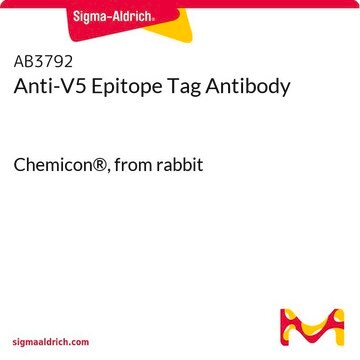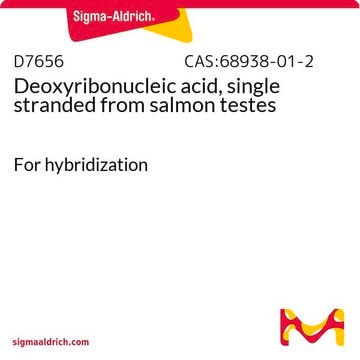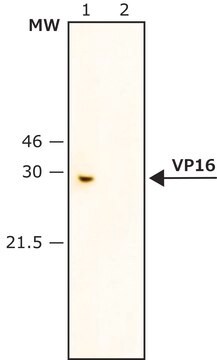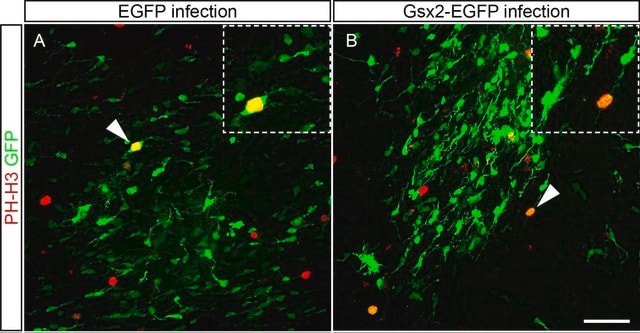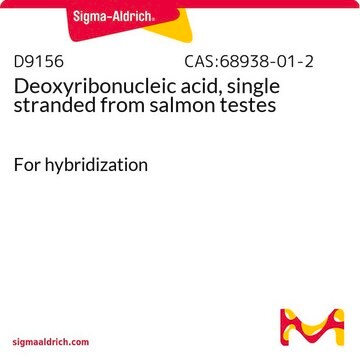V8137
Anti-V5 antibody produced in rabbit
IgG fraction of antiserum
Synonyme(s) :
Rabbit Anti-V5
About This Item
Produits recommandés
Source biologique
rabbit
Niveau de qualité
Conjugué
unconjugated
Forme d'anticorps
IgG fraction of antiserum
Type de produit anticorps
primary antibodies
Clone
polyclonal
Technique(s)
immunocytochemistry: 5 μg/mL using V5 tagged fusion protein in methanol-acetone fixed transiently transfected 293T cells
immunoprecipitation (IP): 5 μg/mL using V5 tagged fusion protein from extracts of transfected cells
western blot: 2.5 μg/mL using V5 tagged fusion protein expressed in whole extracts of transfected cells
Conditions d'expédition
dry ice
Température de stockage
−20°C
Modification post-traductionnelle de la cible
unmodified
Description générale
The rabbit Anti-V5 synthetic peptide antibody reacts with V5 tagged recombinant fusion proteins expressed in transfected mammalian cells and from in vitro translation.
Spécificité
Application
- immunocytochemistry
- immunoprecipitation
- western blot
Forme physique
Stockage et stabilité
Clause de non-responsabilité
Vous ne trouvez pas le bon produit ?
Essayez notre Outil de sélection de produits.
Code de la classe de stockage
10 - Combustible liquids
Classe de danger pour l'eau (WGK)
WGK 3
Point d'éclair (°F)
Not applicable
Point d'éclair (°C)
Not applicable
Équipement de protection individuelle
Eyeshields, Gloves, multi-purpose combination respirator cartridge (US)
Certificats d'analyse (COA)
Recherchez un Certificats d'analyse (COA) en saisissant le numéro de lot du produit. Les numéros de lot figurent sur l'étiquette du produit après les mots "Lot" ou "Batch".
Déjà en possession de ce produit ?
Retrouvez la documentation relative aux produits que vous avez récemment achetés dans la Bibliothèque de documents.
Les clients ont également consulté
Notre équipe de scientifiques dispose d'une expérience dans tous les secteurs de la recherche, notamment en sciences de la vie, science des matériaux, synthèse chimique, chromatographie, analyse et dans de nombreux autres domaines..
Contacter notre Service technique
